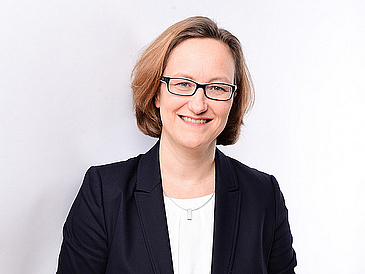Bremen competence for the German Research Foundation (DFG): Three female and four male professors from the University of Bremen have been elected to DFG Review Boards. The 49 review boards are important advisory bodies when awarding DFG funding.
A total of 54,068 researchers took part in the election and electronically distributed up to six votes each amongst 1,631 candidates. One result of the election is the renewed increase in the proportion of women: The percentage of elected female review board members is 37.9. In the 2019 election, it was 32.1 percent.
The review boards take over the evaluation of grant applications to the DFG, thereby providing technical quality assurance of the evaluation in a three-stage process of review, evaluation, and decision. They compare all the applications available to them in order to identify the most eligible projects within the given financial framework. In this way, they ensure that the applications are assessed according to uniform standards across the DFG programs.
The elected members of the review boards are assigned to a subject area according to the focus of their scientific work. Several scientifically interlinked subject areas form a review board and thus provide the expertise for a comparative assessment. The work of the review boards begins in the spring of 2024 and lasts four years.
Simone Kasemann was elected to the review board “Mineralogy, Petrology, and Geochemistry” in the subject area “Mineralogy, Petrology and Geochemistry.” She is Dean of Faculty 5: Geosciences. Within the faculty and at MARUM – Center for Marine Environmental Sciences, the professor heads the Isotope Geochemistry research group.
Gritt Klinkhammer was elected to the review board “Social and Cultural Anthropology, Non-European Cultures, Jewish Studies and Religious Studies” in the subject area “Religious Studies.” She is a professor in Faculty 9: Cultural Studies, where she heads the Empirical Research and Theories of Religion research group in the Institute for the Study of Religion and Related Didactics.
Lutz Mädler was elected to the review board “Process Engineering, Technical Chemistry” in the subject area “Mechanical Process Engineering.” He heads the Particles and Process Engineering group as a professor in Faculty 4: Production Engineering – Mechanical Engineering & Process Engineering. At the Leibniz Institute for Materials-Oriented Technologies – IWT, he is the director of the “Process Engineering” department.
Philip Manow is head of the Comparative Political Economy research group in Faculty 8: Social Sciences and spokesperson for the Research Center on Inequality and Social Policy (Socium). He was elected to the review board “Social Sciences,” in the subject area “Political Science.”
Nicole Megow was elected to the “Computer Science” review board in the subject area “Theoretical Computer Science.” She is a professor in the Faculty of Mathematics and Computer Science and heads the Combinatorial Optimization and Logisticsresearch group.
Olaf Groh-Samberg is a sociology professor at the Research Center on Inequality and Social Policy (Socium) in Faculty 8: Social Sciences. The expert on the structures, conditions, and consequences of social inequalities in welfare societies was elected to the "Social Sciences” review board in the subject area “Empirical Social Research.”
Matthias Zabel will participate in the review board “Geology and Palaeontology” in the subject area "Geology.” The private lecturer is head of the Sediment Geochemistry research group at MARUM – Center for Marine Environmental Sciences and university lecturer for geoscience courses in Faculty 5: Geosciences.
Further Information:

